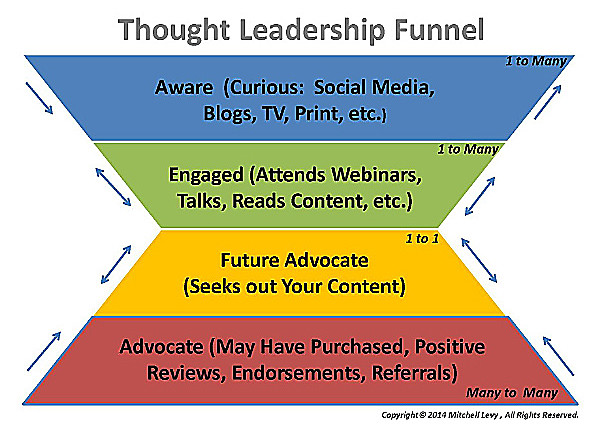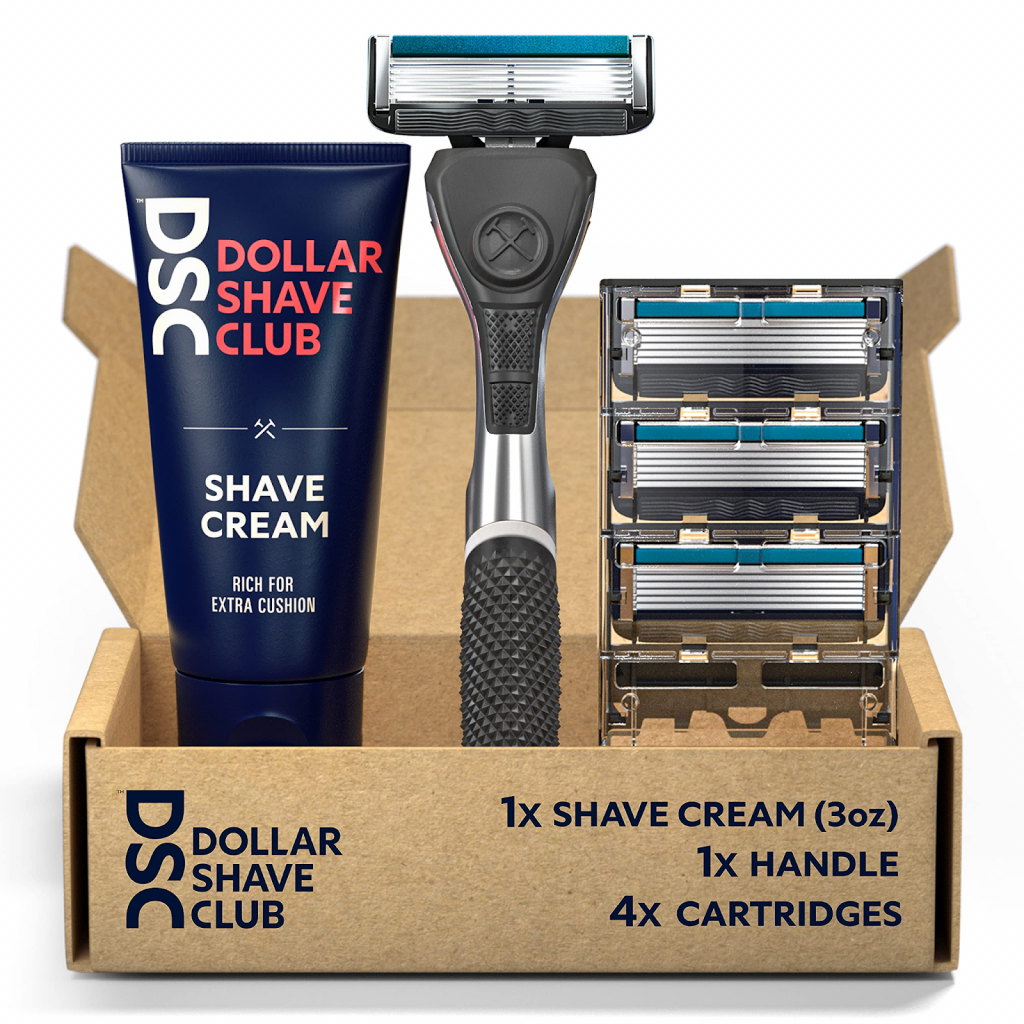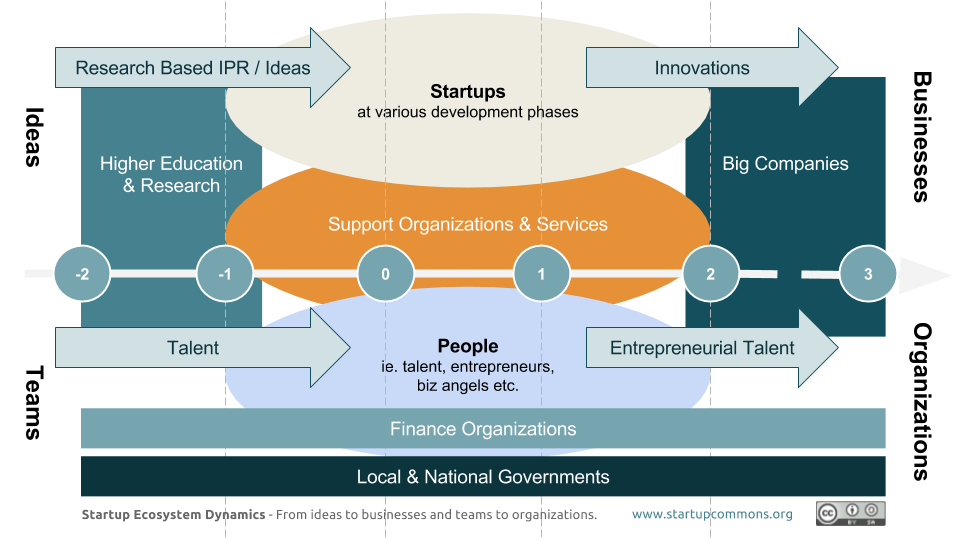Startups seem to be sprawling out from everywhere these days. And for a reason – people have the resources and ideas to finally show the world what they want to change and how they plan to go about it. But – getting a word out on the street can be problematic, especially for a company with no industry relationships.
Well, here comes the idea of marketing for startups. You can find your first users, build relationships, and even do it all with a limited budget – if you can find the proper channels to utilize. With the use of social media platforms, content marketing, and some good SEO practices, you can get pretty far when putting out quality content or a product to customers directly.
In this article, we will review all the essential elements to remember if you want to make more money and change the world. Let’s dive in!
What Is Marketing for Startups?
A digital marketing strategy can help raise brand awareness, create social media networks, and boost your startup. Marketing for startups would then include all the strategies and tactics you may do to promote your products/services all over the internet. It can also help you to build brand awareness and get those customers everyone seems to be fighting for. Some of the best marketing ideas were responsible for the popularity of great brands. We will go over those further in the article.
How is it accomplished? Well, by implementing some excellent marketing plan that should include good branding, social media marketing, good SEO practices, content marketing, and honestly – all the valuable assets you have in your repertoire. Of course, it all depends on the marketing budget, as, for example, buying and creating ads can be pretty pricey, but you can get someplace even with free marketing materials. So, if you want to grow your startup business – let’s find out how exactly you should do it.
Marketing for Startups – Benefits
First, let’s review some benefits that setting up marketing goals can bring the company. Every new business relies on acquiring people interested in their products and services, but you cannot forget about the existing ones as well.
Most successful companies spend up to 20% of their profits on marketing. Key Performance Indicators don’t lie either. If you have a solid marketing channel, your KPIs will skyrocket, and without it, you may not be able to connect with the target audience or generate any demand for your products and services. Additionally, no one will know about your startup, so it would be as if it never existed. Reputation in the industry is extremely essential when it comes to startups.
So, without further ado, let’s get into the benefits of implementing some good strategies when it comes to marketing for startups.
Brand Awareness

First up, we have the mentioned previously brand awareness. Your brand presence is vital in attracting new customers and standing out in your startup’s field. Whether you create ads or utilize some content marketing strategies, if people know your brand, it’s much more likely that they will choose it over something they are not familiar with.
It’s the basic example of no-brand cereals vs. something that was promoted over and over again on TV. Most people will take the more expensive product that they have seen, even if they would taste the same.
Getting Leads
All marketing efforts boil down to one thing only – expanding the customer base. Acquiring new customers is vital when it comes to growing your business. Marketing is highly effective when bringing the right people to your business for an excellent cost-to-benefit ratio. With hard work, you can definitely benefit from utilizing marketing tools we will go over later in the article and get more people interested in your product or service.
Building Trust Among Customers
Additionally, you can use your platform not only to boost your sales but to build trust among customers. Credibility is vital for startups, as they are not established businesses, so communicating the value of your idea can get you a lot of visitors/clients. It can be rough at the start, but with an increasing number of hours put into messaging, you can bring a considerable number of people over to your business.
Data Analysis
The next great benefit of startup marketing is the ability to gather data and measure results based on that data. Marketing allows you to not only garner a large audience, and target people who may be interested in your businesses. It also allows you to see the growth of the company as a whole with some great analytics tools that you can utilize to create better marketing strategies.
Startup Growth
Many startups suffer from a lack of growth in their first steps when promoting their products. Marketing is critical when it comes to driving scalable growth. With good marketing practices, you can get more visitors, and with the right message that people hear from you, even overshadow other startups in your market. With consistent marketing efforts, there’s a good chance that your company will grow and achieve success.
Thought Leadership

Another great thing about marketing is that you can establish yourself and your stakeholders as the thought leaders in the industry. Content marketing is an excellent way of accomplishing that. Why is it important? Well, if you have a high place in the people’s regard, you can not only participate in the market but start to shape it to your needs. It makes the most sense to be a thought leader in your industry and show people what is important rather than blindly following someone else’s opinion.
Be Ahead of the Competition
And with that – you can get ahead of the competition quickly. With out-of-the-box thinking and online/offline promotion, you can get a lot of satisfied customers that will blow up the core metrics of your success. Many startups have positioned themselves as an innovative alternative to some overly promotional established brands.
Marketing for Startups Methods

Knowing the most significant benefits of startup marketing, let’s now go over the specific methods that you can utilize in your very own startup marketing efforts. Those are not exhaustive, of course, but are the most important among many categories. Let’s dive in!
Content Marketing
One of the most significant branches of marketing for startups is content marketing. It can be of great use, especially if you want to grow not only your brand but spread the idea as a whole. Additionally, content marketing can be great if you are on a budget. Doing videos or writing blog posts on topics that you know a lot about is something that you can do without having to hire an agency or buying some ads. Here are some key elements to remember when it comes to content marketing.
Define Your Strategy
The first thing you need to consider is identifying your target audience and creating a strategy to help you reach them. Content strategy should align not only with your business goals but also take into consideration all the pain points of your audience. See what works best for you and your company and work upward.
Valuable Content
The most important thing to remember regarding content marketing is to create high-quality, valuable content. Be sure that what you have produced is well-researched, has a visually appealing structure and bring something new to the conversation. That way, you will be able to create something not only informative and educational but also – entertaining. All the potential challenges, questions, and issues your customers may have should be addressed. Additionally, keep an eye on the little things.
Promo!
Organic search is something that you strive for, but sometimes you just need a little push. Promote your content on many different channels, from social media, through email marketing, to bought ads, and make it visible to the target audience. It’s not a shortcut if everyone does it, so don’t feel ashamed that your efforts may need some amplification.
Interact with Your Fans!
Your fans are the people who trusted you with your time and money, so be there for them. Respond to comments, participate in the forums, and take care of your community. Audience engagement is critical when it comes to building a thriving community. People who feel comfortable in your presence will actively share and interact with your content. And that’s some earned media marketing, especially with all the valuable insights you may get from the people around you.
Analyze and Upgrade
And finally – analyze and upgrade your content according to the results you are getting. Keep an eye on the key metrics showing if you are doing it right. Things like website traffic, engagement, and conversion rates are the metrics that you should primarily focus on. That way, you can optimize your future campaigns and grow a bigger following.
SEO

The second big thing in marketing for startups is Search Engine Optimization (SEO). It’s a combination of strategies that can bring organic traffic to your website by putting it high in the SERP (Search Engine Result Page) rankings. It’s crucial for the long-term success of your company, as it will grow your business substantially every week. One thing to remember, though – it’s not a miracle. It will not happen overnight; it will not take a week. SEO practices are a long-term strategy, so plan for it accordingly. With that in mind, let’s review some key SEO best practices elements.
Keyword Research
You first need to do your due diligence and keyword research. There are many ways to accomplish that, with the emphasis on Google tools, on subscription-based websites such as SurferSEO or Ahrefs. Finding out some of the terms aligned with your SEO practices can help you better understand how you should go about your marketing and on-page/technical SEO optimization.
On-Page SEO

On-page SEO is one of the most important elements when it comes to good SEO practices. Those would be all the tags in the title, associated with your relevant keywords, headings in the articles or meta tags, that are great for indexing your website in Google’s rankings. Those could also be the URL-structure of your website, and just an overall good UI/UX experience that the users may have with your website. Search engines give some additional points for it, so be sure to take care of that as well.
Optimize Your Content
The next thing to do is to optimize your content. It is crucial to do something unique and high-quality with some additional personal touch to it. You need to add to the discussion, not just copy everything that someone previously wrote about the issue. Show that you are an expert on the topic, and present some suitable quality materials.
Local SEO

The next thing you can implement in your SEO practices is the LocalSEO. If you want to work locally, you optimize your Google My Business profile by adding your current location, open hours, and some regional-specific keywords that can drive traffic to your website.
Technical SEO
The next thing to keep in mind is the technical SEO. Those would be all the technical elements contributing to your website’s speed, mobile optimization, and URL structure. Technical SEO is a rather big topic, so we would not discuss it here. One thing we can say, though, is that creating XML sitemaps can do some perfect things when it comes to informing Google’s crawlers (digital “spiders” checking out websites on the internet) responsible for indexing and ranking sites.
Analyze
After you have implemented all the SEO best practices, see if you need some additional changes to how you operate. Check if your traffic went up and if there are some things you can improve on. And, as usual, make data-driven decisions rather than going with your “gut” feeling.
Keep Learning!

Finally – keep learning. SEO and algorithms keep evolving, so staying updated with industry trends and algorithm changes is essential. Be sure to check out the latest edition of Google updates and see if there are some changes you should know about.
Social Media Marketing

Another big thing in marketing for startups is social media marketing. Some may say that it’s the key to running a successful startup, as most things nowadays are being run on social media rather than some specific websites. Additionally, it allows you to reach a much greater audience than if you would have to direct them to your particular website.
Of course, getting them to your content/product directly is much more valuable, but it’s just too big of an advantage to use SM not to utilize it. Every startup marketing strategy should start with finding the best SM solutions for their particular line of business. So, let’s get into some SM details it’s great to know about.
Find Target Audience

The first thing you need to do is to understand your target audience. This would mean determining the specific demographics and interests to find your business’s best social media platform and cater to the audience.
Influencer Marketing
As we have seen repeatedly, influencers are extremely good at selling your product, and it’s no different in this case. Partnering with them can help you to amplify your voice in social media and increase your reach overall. Their social channels can be a great asset for growing your brand.
Content Strategy
Next, you need to find the target market for your product/content and create a strategy that can make the most significant value to your startup. This would mean presenting great educational content, behind the scenes, storytelling, and entertainment. Find out what works best for you, whether it’s creating videos or utilizing images to get even better results when engaging your audience.
Ads
Next up, we have the ads department. Of course, paid services are always problematic, as many people do not want to add costs to what they already pay for marketing. Still, sometimes a little push on social media, even for a few dollars, can do amazing things regarding reach. Platforms like Twitter Ads, Facebook Ads, Instagram Ads, and LinkedIn Ads offer different strategies to reach specific demographics and people with specific interests. Utilizing those tools is the key to achieving massive success, even at a low cost.
Be Consistent
The next thing to remember is to be consistent when it comes to posting on social media. The algorithm loves active and regular publications, so share it regularly on social media with your fans. After some time, you will be able to find out when you should publish, what type of content is best for you, and how you should go about the frequency.
Engage with your Community
And – remember to engage with your fans! Respond to comments or messages, and see if your social media mentions are meaningful. With a great community, you can create good user-generated content, add some giveaways, and grow your brand.
Analytics Tools
Finally, similarly to the other points mentioned above – use analytics tools to your advantage. Measure your performance and track reach, engagement, click-through, and conversion rate. These data pieces can help you optimize your strategy and get even better results in future endeavors.
Marketing for Startups – Challenges
Let’s now go over some challenges that may come up when setting up marketing for startups. Of course, as an upcoming company, you need to plan and adapt to the circumstances, be ready to experiment, and bravely challenge the market. The main thing you need to do is to stand out. It may sometimes be problematic, but staying true to your core values and going from there is the most important thing. With that in mind, let’s review some key elements that can be a potential issue regarding startup marketing.
- No one knows you – building brand awareness from scratch can be a problem for many upcoming startups. To combat that, you need to find who your target audience is and find a way to stand out among the competitors.
- No resources – startups don’t often have unlimited marketing budgets like some companies, and their marketing efforts are often limited compared to the established brands. In this case – try doing something for yourself. Create content and share it with others. That costs nothing but time, and it’s always a good start.
- Find your audience – another potential issue for upcoming startups is to identify the audience you are trying to reach. Thorough market research is vital to find out your customers’ needs. Only that way will you be able to find the ideal customers for your brand.
- Competition is one of the biggest problems, as the established competition has a few things over you regarding development. You need to find a way to differentiate yourself with your offer and communicate your unique proposition. That way, you will be able to overcome those major differences.
- Return of investment – measuring how good your marketing strategy is and if it’s bringing you customers can be a problem. For example, good SEO practices can take some time to show results, and expecting something to change drastically daily is a rather naive way of looking at things.
- Adapting changes – another thing to remember is that startups operate in an extremely dynamic environment. Everything can change rapidly, so you need to keep everything under your control. Adapting the strategy can be a problem for a company with limited resources that do not have a lot of experience in the field.
- Finding proper channels of communication – finally, as a startup, you may encounter some issues when finding your target audience. This would require some severe experimentation in your department, as you will need to invent it from scratch. There are some ways of finding that out, of course. You can simply look at what the competitors are doing, but you must also be looking for something suited for you.
Marketing for Startups – Best Examples
So, now that we know something about marketing for startups, let’s find out what it looks like in practice. Innovative approaches, unique concepts, and a passion for growing your business and brand cannot be underestimated. Here are a few great startup examples that had incredible success with good marketing.
Dropbox

First up, we have the one, the only Dropbox. What was the story behind this storage? Well, a great referral marketing plan. Dropbox created a genius referral program that offered users additional storage space for those who recommended the app to friends. Results – well, it’s one of the most prominent storage spaces in the world, so we see it as an absolute win.
Dollar Shave Club

It’s a great combination of content marketing and influencer marketing combined. Almost every influencer recommended Dollar Shave Club some time ago, and their hilarious videos went viral on social media platforms. The company is worth millions of dollars and seems to be doing quite well.
Airbnb

In case you didn’t know, Airbnb started as a startup. The key to success was creating a listing for people looking for a place to stay for a few days during festivals and conferences. And, well, the rest is history.
Slack

And finally, we have our beloved work-helper – Slack. In this case, it was all about content marketing strategies, with lots of guides and webinars that helped educate the audience that decided to use Slack. It’s also a great example of becoming thought leaders in the community.
Marketing for Startups – Conclusion

And here we are, at the end of our presentation. As we have pointed out many times in this article, effective marketing plays a crucial role in the success of startups. The right marketing strategies can make or break your business. Utilizing social media platforms, SEO practices, and content marketing can increase the visibility and reach of your company while also getting you some new customers. If done right, marketing can also ensure a significant brand presence and make you competitive in the rough marketplace.
Use some of the suggestions we have presented. You will be able to overcome your competitors and, even as a small business, get some significant advancement when it comes to overcoming other brands. If you want your business to grow, include those elements in your marketing strategy.
Thanks so much for stopping by! If you have any questions – let us know. Additionally, we have a lot of fantastic articles on our site, so be sure to check those out. Thanks for today, and we will see you in the next one.

SEO enthusiast and digital marketing strategist. My expertise lies in optimizing websites for organic traffic growth and search engine visibility. I carry out, among others, SEO tests, keyword research and analytical activities using Google Analytics. Privately, he is a lover of mountains and bicycle trips.

